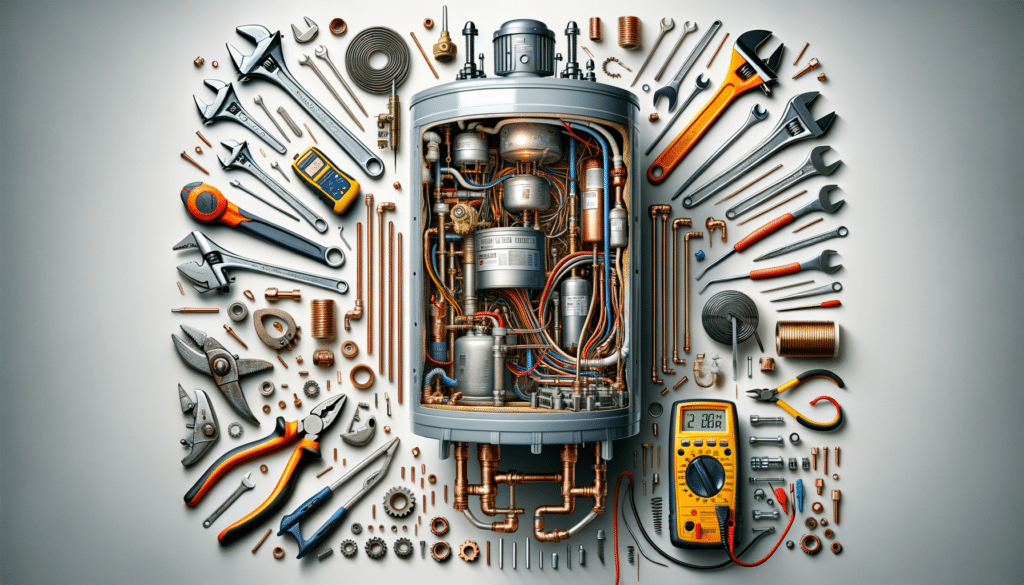Understanding the Basics of Water Heater Repair
Water heaters are an essential component of modern homes, providing the comfort of hot water for various purposes. Understanding the basics of water heater repair can save homeowners time and money while ensuring the longevity of their appliances. A typical water heater consists of a tank, heating elements, and a thermostat, among other components. Over time, these parts may wear out or malfunction, leading to issues such as inadequate heating, leaks, or strange noises.
To effectively troubleshoot these problems, one must first identify the type of water heater in use: tankless, electric, or gas. Each type has its unique set of components and potential issues. For instance, tankless water heaters, known for their energy efficiency, may suffer from mineral buildup, while electric heaters often face problems with heating elements.
Homeowners should regularly inspect their water heaters for signs of wear and tear. Common indicators include rusty water, unusual sounds, and fluctuating water temperatures. Regular maintenance, such as flushing the tank to remove sediment, can prevent many common issues. By understanding these basics, homeowners can better communicate with professionals or even tackle minor repairs themselves.
Common Water Heater Problems and Solutions
Water heaters, like any other appliance, are susceptible to a range of issues over time. Some of the most common problems include:
- No Hot Water: This could be due to a faulty thermostat or heating element in electric models. In gas models, the issue might stem from a pilot light that has gone out.
- Inadequate Hot Water: Often caused by a misadjusted thermostat or a tank that’s too small for the household’s needs.
- Leaking Tank: This is a serious issue that usually indicates the need for a replacement, as it can lead to significant water damage.
- Rusty Water: This can be a sign of corrosion inside the tank, suggesting that the anode rod needs replacing.
Addressing these issues promptly is crucial. For instance, replacing a faulty thermostat can restore hot water quickly, while regular maintenance like replacing the anode rod can prevent rust and extend the life of the heater. Understanding these common problems and their solutions can help homeowners maintain their water heaters more effectively.
DIY Water Heater Repair Tips
For those who enjoy tackling home improvement projects, some water heater repairs can be done without professional assistance. However, safety should always be the top priority. Before attempting any repairs, ensure that the power supply is turned off for electric models, or the gas supply is shut off for gas models.
One simple DIY task is flushing the tank to remove sediment buildup. This process involves turning off the water supply, attaching a hose to the drain valve, and letting the water flow out until it runs clear. This helps improve efficiency and prolong the heater’s lifespan.
Another common DIY task is replacing the thermostat or heating elements in electric water heaters. These components are relatively easy to access and replace with basic tools. However, always consult the manufacturer’s instructions or a reliable guide before proceeding.
While DIY repairs can be rewarding, knowing when to call a professional is essential. Complex issues like gas leaks or significant tank damage should always be handled by experts to ensure safety and proper repair.
When to Call a Professional
While many water heater issues can be resolved with a bit of DIY know-how, certain situations require professional intervention. Recognizing these scenarios can prevent further damage and ensure the safety of your home.
If you notice a persistent water leak around your water heater, it’s time to call a professional. Leaks can indicate a variety of issues, from loose connections to a corroded tank, and require expert assessment to determine the best course of action.
Strange noises, such as popping or rumbling, may suggest sediment buildup or other internal issues that a professional should evaluate. Additionally, if your water heater is over ten years old and experiencing frequent problems, it might be more cost-effective to consider a replacement rather than constant repairs.
Gas water heaters, in particular, should be handled with caution. If you suspect a gas leak or have issues with the pilot light that you cannot resolve, contact a professional immediately. Their expertise ensures that repairs are done safely and effectively, minimizing risks and extending the life of your appliance.
Preventive Maintenance for Longevity
Preventive maintenance is key to ensuring the longevity and efficiency of your water heater. Regularly scheduled maintenance can help avoid costly repairs and unexpected breakdowns. Here are some essential maintenance tips:
- Annual Inspections: Have a professional inspect your water heater at least once a year to check for potential issues and ensure all components are functioning correctly.
- Flushing the Tank: As mentioned earlier, flushing the tank removes sediment buildup, which can hinder efficiency and lead to damage over time.
- Checking the Anode Rod: The anode rod prevents rust by attracting corrosive elements. Replacing it every few years can significantly extend the life of your water heater.
- Temperature Settings: Keep the thermostat set to a safe and efficient temperature, usually around 120 degrees Fahrenheit, to prevent scalding and reduce energy consumption.
By implementing these preventive measures, homeowners can reduce the likelihood of unexpected water heater issues and enjoy consistent performance. Regular maintenance not only enhances efficiency but also contributes to the safety and comfort of your home.





